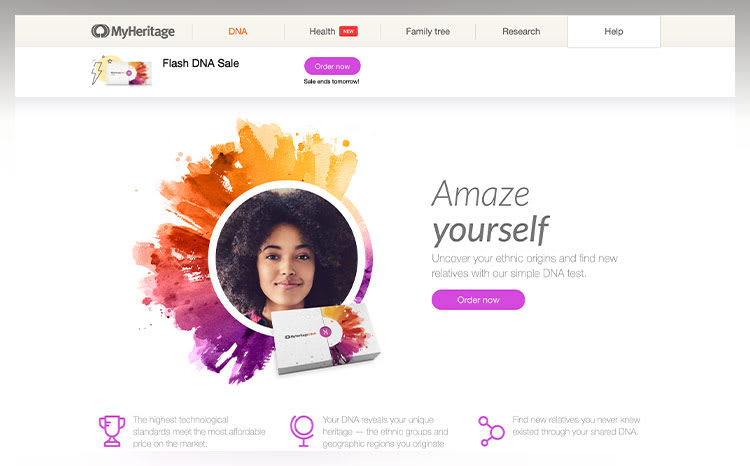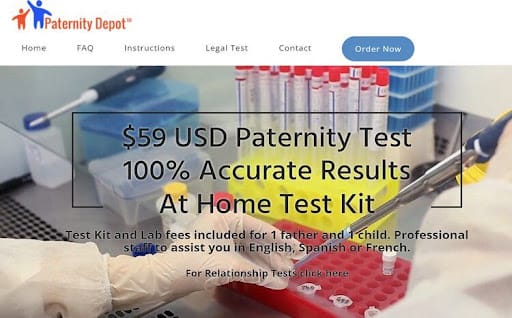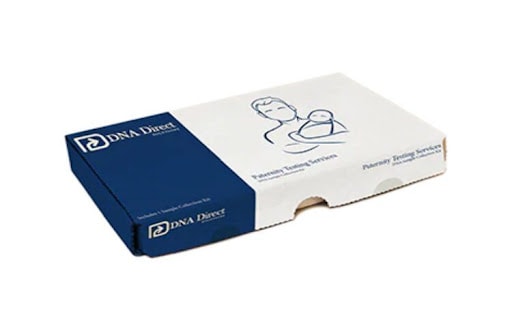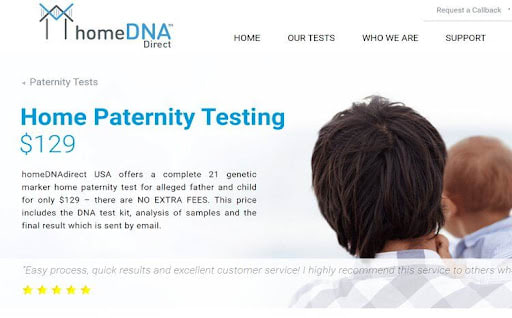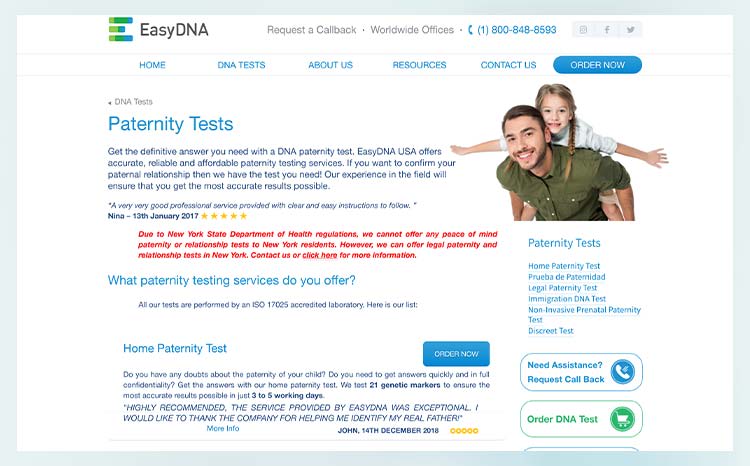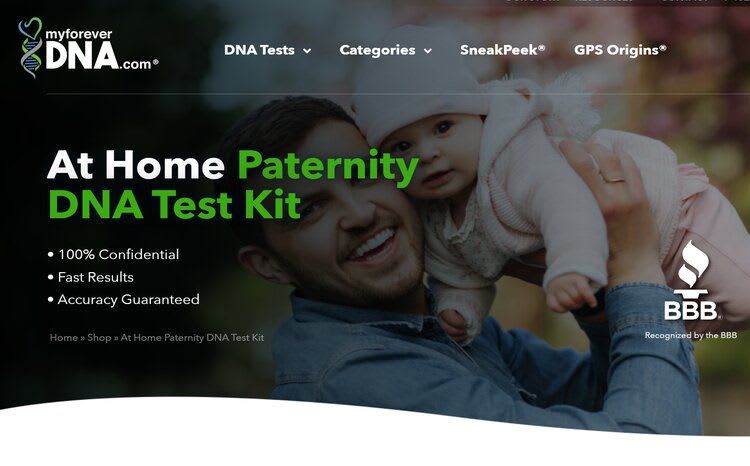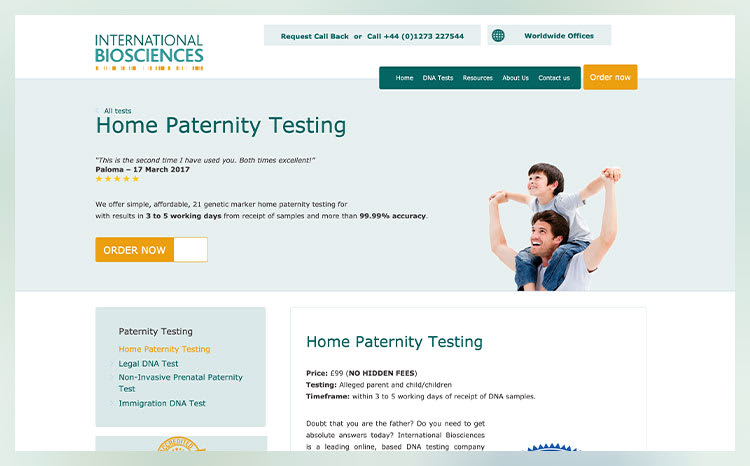What is a DNA Paternity Test and What are the Best Options?
A paternity test is a way to determine a child’s biological father, by examining the DNA taken from the child and the suspected father. Typically this involves a small swab of saliva from the inside of the cheek, from which DNA can be extracted and examined.
DNA paternity tests are quick and accurate and the chances of a false positive are astronomically low, with the odds of two non-related people having identical DNA profiles standing at less than one in a billion. DNA is our body’s unique “fingerprint,” which no one else (except an identical twin) shares. Parents pass some of their DNA down to their children, who receive 50% of their DNA from each parent. By examining the DNA of a child, mother, and suspected father, testing can prove paternity with 99.9% accuracy.
Today the market offers all types of options for DNA tests which can be performed quickly and painlessly at home for a nominal cost. These tests can provide the answers parents are looking for, bring closure, or open up a whole new beginning. This includes some of the best DNA testing kits that are designed specifically for paternity testing.
How Do Paternity Tests Work?
The basics of paternity tests are pretty well-known. Each child gets half of his/her genetic information from his/her mother and half from his/her father. By taking a sample of the child's DNA and comparing it to both the mother's and the father's DNA, scientists can see if it matches. If the child has sections to his/her DNA which don't match either the mother or the father, then you’ve got the wrong daddy.
Cheek swab paternity tests work using Polymerase Chain Reaction (PCR), which multiplies the tiny sample of DNA from the swab billions of times (that's how they can get a reliable answer from just a dab of saliva). Lab scientists then take just 16 specific DNA fragments from the sample, of which 8 should match the mother's DNA, and 8 should match the father’s.
Paternity tests usually take a few days to process and return an answer, but if you’re in a hurry and need a definite answer ASAP for legal reasons or to fill in the name on a birth certificate, or for any other reason, then you can get an expedited test for results in just one day.
Eligibility for Paternity Tests: Who Can Benefit?
- Some states require an unmarried mother to get a paternity test in order to know who the father is for legal purposes.
- Both women and men have a legal right to request a paternity test in order to prove fatherhood. If the mother or possible father refuses, the case can go to court for a paternity hearing, and the whole process takes a lot longer.
- A child can also get a paternity test. This happens most often with children who were adopted or who grew up without a father and want to learn for certain who their father is. Legally, anyone can request that the person they suspect to be their father take a paternity test, but different states have different rules about whether the possible father has to agree.
- If a child has a legal guardian, then the guardian also has the right to ask for a paternity test for the child, even if the guardian isn’t a biological relative.
Choosing the Right At-Home Paternity Test Kit
Key Considerations:
1. Accuracy. When shopping around for a paternity test, first focus on accuracy. Most top paternity test companies promise 99.9% accuracy, but you should also look for official certification from a body like the American Association of Blood Banks (AABB), which would confirm that the testing is carried out at a certified, professional facility. In addition, make sure that the company guarantees your confidentiality.
2. Price. Such certification can be important if the test will be used for a legal proceeding, such as one involving custody or child support. If you need a test that is admissible in court, make sure that the test you order fits the bill.
3. Confidentiality. In addition to being admissible in court, some paternity tests offer the option of being able to split up the kit and send the swabs to different locations, in the event the parents live in different cities. Some also offer animal DNA testing services, which can be utilized by breeders and kennel owners who need to check the progeny of their animals and by owners who want to get an idea of the medical issues that may arise in the future. These tests can also be used to determine if it’s your neighbor’s dog that’s been leaving a little present in your lawn when you’re at work.
4. Simplicity. You’ll also want a test that is simple to take and which doesn’t leave anything to the imagination when it comes to the results. A paternity test can be a life-changing experience and you want one that will be easy to handle on your own. In addition, once you finish taking the test, you’ll probably be eager to get the answer, so find one of the DNA companies that can assure delivery of the results within 5 days or less.
5. Reliability. Finally, reliable customer service can help you figure out how to take the test if you have any issues, and also how to troubleshoot any problems that could come with the shipment or results.
DNA Tests for Establishing Biological Parent-Child Relationships
There are many reasons why people do DNA testing—to explore ancestry, confirm paternity, screen for health issues, and to look for biological relatives. If your reason for taking a DNA test is to find children you put up for adoption or to find parents who put you up for adoption, you’ll need to make sure to take the right DNA test.
In this case, the Autosomal DNA test is preferred—it can give you an ethnicity estimate and show you relative matches up to 6 generations on both your mother and father’s sides. Other tests, like YDNA and mtDNA, show you only the paternal line and maternal line, respectively. While you can do the latter 2 tests as well, Autosomal is essential if you’re looking for recent relatives.
Reuniting Birth Parents and Adopted Children through DNA Testing
When you take an Autosomal DNA test, what you’re hoping for is that your biological children/parents also took the test, and entered their results into the testing company’s database. Because the premise of finding a match is based on comparison—the lab will analyze your DNA markers and then compare it to other samples to see if there’s a match. If your relatives haven’t done a DNA test, the lab won’t be able to find one.
Baby Gender Tests: Revealing Your Baby's Gender
If you’re anxious to find out whether you’re having a boy or a girl, a baby gender test (also known as fetal sex test) is an easy way to find out. Baby gender tests can be conducted as early as 7 weeks from your last menstrual period, but accuracy is improved if you wait until at least 10 weeks. Like prenatal paternity tests, DNA testing to find out the gender will require an NIPT, so you’ll need to do a blood test. Also like prenatal paternity testing, baby gender testing can be done through DNA testing kit delivery services.
Tests typically costs about $200 and you get results in up to 2 weeks.
When taken between 7-20 weeks, these tests are 95%-98% accurate. Of course, there’s no need to take this test if you’re able to find out your baby’s sex at your 14-week ultrasound. On the flip side, if you take a baby gender test, that doesn’t give you the green light to skip an ultrasound! Ultrasounds not only reveal the gender of your baby, but they can show you many other important things as well.
Primary Benefits for Users of Paternity Test Kits
What can you expect from your DNA paternity test? Almost all DNA paternity tests promise 99.9% accuracy, a greater burden of proof than any other means of proving paternity that you could find. With a paternity test in hand you have evidence that can finally give you answers and which can often be admissible in court, allowing you to help ensure your child has a second parent providing for them.
Genetic testing can also predict future health problems down the road, allowing parents to plan ahead, potentially helping ensure better treatment for their children.
Essential Information to Know Before Taking a Paternity Test
Before taking a paternity test, it’s important to understand how these tests work. Paternity DNA tests compare your DNA and a child’s DNA to see if they have specific genetic markers in common. If an alleged father and child don’t share a set of identical genetic markers, it’s highly unlikely that they are related.
In most cases, a paternity DNA test is 99.99% accurate. Including a DNA sample from the child’s mother can push the accuracy to more than 99.9999%. These tests are a highly accurate way to determine paternity.
Still, home paternity tests are often not permissible to use as evidence in a court of law. If you are taking a paternity test for legal or official purposes, make sure to get a legal paternity DNA test.
Our Methodology for Comparing Paternity Test Kits
We compared paternity test kits primarily on price, ease of use, turnaround time, and accuracy. For the majority of paternity test kits, these are the factors that matter most for getting results you can trust as quickly as possible.
We also considered the privacy policies of the companies offering paternity test kits. Although paternity tests only require sequencing a small portion of your genome, some companies may use your sample for purposes beyond just testing paternity. The best paternity DNA testing companies have policies in place to ensure your sample is never analyzed without your consent and your data is never shared.
The Final Verdict: Making an Informed Decision
Establishing paternity can be a life-changing experience for both parents and children alike. It can provide a final, clear answer which is necessary to move forward and provide children and parents with the security they need both in the way of child support payments and establishing custody and immigration rights. Luckily, with home paternity tests it’s easier than ever before to get these answers.
All 10 of these paternity tests are perfect for a variety of needs and reasons. Some stand out for their vast networks of users and detailed ancestry reports, while others have a really fast turnaround process and transparent pricing. Whichever paternity testing company you choose, know that you’re getting accredited and quality service that can help answer this pressing question.
You must take a legal paternity test rather than a home paternity test to use your test results in a court of law or legal custody case. A legal paternity test includes a chain of custody or a witness to ensure that the samples are not tampered with prior to analysis.
DNA paternity tests vary in price, but you can expect to pay $59-$139 at most testing companies. This price includes shipping to your home and return shipping to the lab as well as DNA testing for both the alleged father and child. Legal paternity tests cost $250-$500.
There are a limited number of ways to help you determine paternity without using a DNA test. These might include blood tests and eye- and hair-color tests.
Most DNA paternity tests can be done with just samples from the father and the child. While it can help with accuracy to have both the mother and father tested, an accurate paternity test can be done without using a mother's sample.
No, a paternity test generally requires only the child and the father. Some paternity test companies say that a mother's sample can increase accuracy, but a paternity test doesn't need both parents present to provide accurate results.










